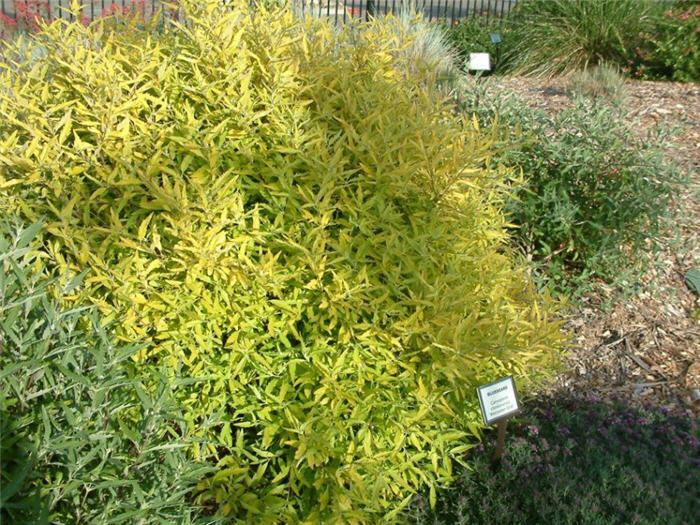| Botanical Name: Caryopteris x clandonensis 'Worcester Go | |
| Common Name: Worchester Gold Caryopteris |

-
Anatomy
-
Culture
-
Design
Plant Type
Shrub
Height Range
1-3'
Flower Color
Blue
Flower Season
Summer, Fall
Leaf Color
Gold, Green
Bark Color
Brown
Fruit Color
n/a
Fruit Season
n/a
Sun
Full, Half
Water
Medium, Extra in Summer
Growth Rate
Moderate
Soil Type
Sandy, Clay, Loam, Rocky, Unparticular
Soil Condition
Average, Rich, Poor, Well-drained, Dry
Soil pH
Neutral, Basic
Adverse Factors
Attracts Bees
Design Styles
English Cottage, Formal, Mediterranean, Ranch, Spanish
Accenting Features
Showy Flowers, Unusual Foliage
Seasonal Interest
Spring, Summer
Location Uses
Perennial Border, Shrub Border, Foundation, Patio, Raised Planter, Walkways
Special Uses
Cut Flowers, Hedge, Small Spaces
Attracts Wildlife
Hummingbirds
Information by: Stephanie Duer
Photographer:
Photographer:
-
Description
-
Notes
This caryopteris cultivar has bright, yellow-green new foliage that contrasts nicely with darker green plants. It has a violet-purple flower that blooms July through September. Moderate grower to 3 feet tall and wide. The yellow foliage is at its best in full sun, however, in our hot climate mid summer sun may cause the foliage to burn, so a little midday shade may be in order.
A nice addition to a sunny shrub or perennial border; also makes a nice hedge. Prefers full to part sun and well drained soil. Over-watering tends to make the plant rangy and may encourage lots of little seedlings. Wood often does not survive the winter, and so pruning back hard in late winter to early spring is recommended; it will also help to keep it tidy. Caryopteris is both deer and rabbit resistant. Attracts bees and butterflies. If over-watered, caryopteris may grow taller and be more sprawlish.